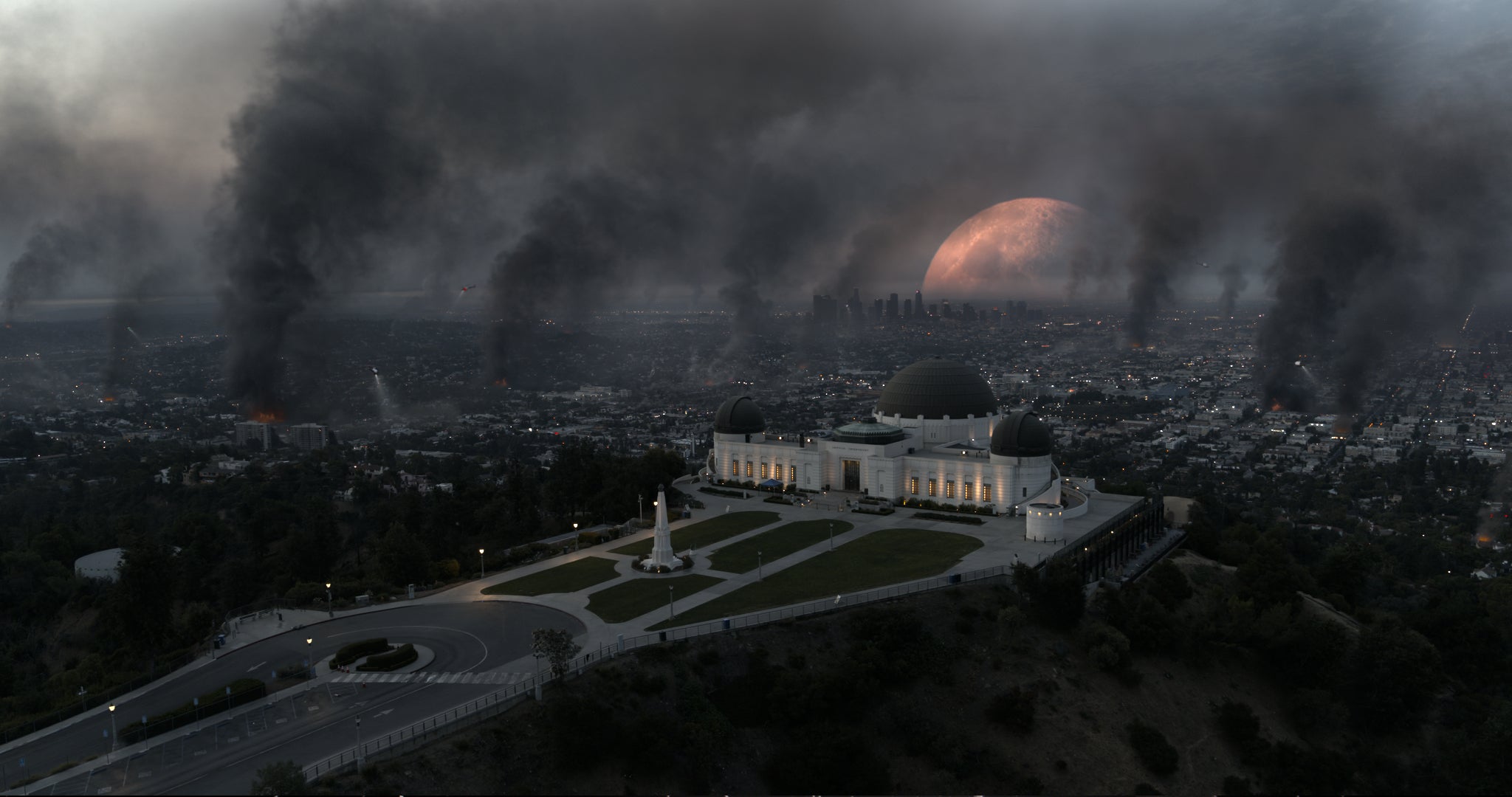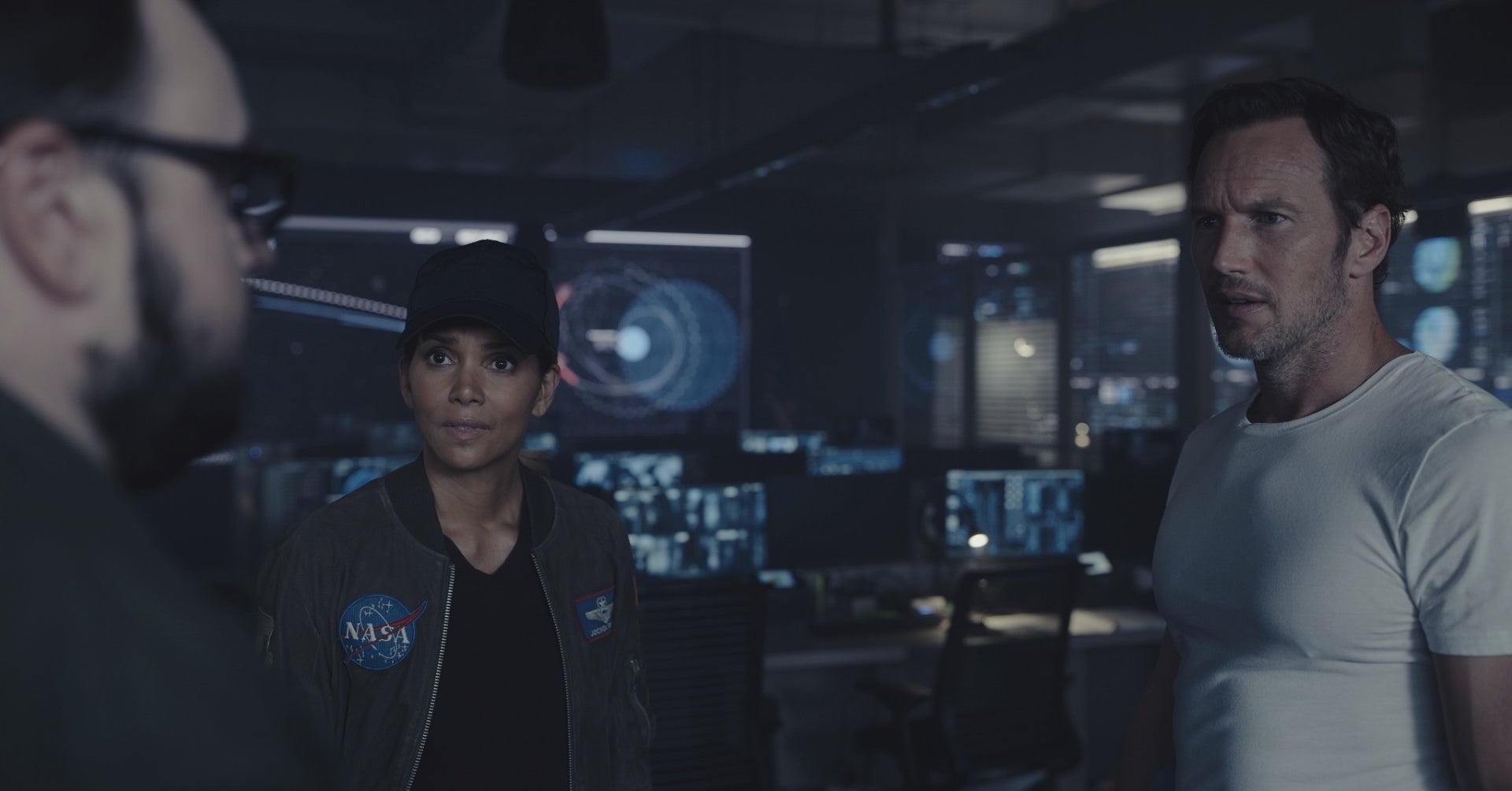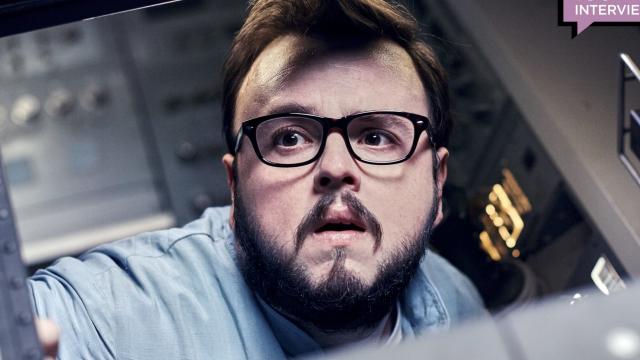Patrick Wilson and Halle Berry may be action movie stars, but the real hero of Moonfall, Roland Emmerich’s newest disaster movie, is played by Game of Thrones’ John Bradley. As good-natured conspiracy theorist K.C. Houseman, he keeps Wilson’s disgraced ex-astronaut Brian Harper and Berry’s no-nonsense NASA chief Jo Fowler grounded, even when they’re rocketing into space to save the world (and the moon, natch). We got to talk to Bradley about his surprising character, how to act in a disaster, and more.
This interview has been edited for length and clarity.
Rob Bricken, Gizmodo: I was hoping that you could settle a bet for me. I’ve got a coworker who’s convinced that filming a big-budget show like Game of Thrones is equal to filming a blockbuster like Moonfall, but I’m convinced that a Roland Emmerich disaster movie is a much bigger experience.
John Bradley: Oh, it’s tricky, isn’t it? The thing about Game of Thrones is it’s big, but it was big for 10 years, right? And a film like Moonfall is a very concentrated period of time where hopefully everybody is going to be talking about it and seeing it at around the same time. It’s much less of a slow burn. It burns incredibly brightly, but for a very short period of time, whereas Game of Thrones spanned the whole decade.
It’s like the difference between length and breadth — two very different sort of units of measurement in terms of the size. It feels like this is the moment for Moonfall, but it’s very hard to pinpoint a moment for Game of Thrones. It started off as being one thing and grew into the biggest show in the world. So at the moment, it feels that Moonfall is bigger, but it’s been on my mind every day of late.
Gizmodo: What was your craziest day filming of Game of Thrones versus your craziest day filming of Moonfall?
Bradley: They’re both quite unpleasant days in their own way. I remember a day in Iceland in December, where it got down to -35 degrees. We were standing on a cliff edge and we were looking out at this vast expanse of snow and ice. I don’t know if you’ve ever tried to speak in -35 degrees, but your entire throat, your entire face seizes up, you have no control of it — you can barely open your mouth, you can barely move a muscle in your face.
This sounds like a very crude thing to say, and please take it in the spirit it’s intended — my face is my tool in my job, and it’s quite difficult when your tool is frozen up and you don’t have the equipment required to do your job.
That was unpleasant enough, but in Moonfall, the scene in which the hotel lobby is flooded with gallons and gallons of water… that wasn’t a particularly pleasant day either.
Before I got to set that day, especially when I read the script, I was a bit like, “I wonder how they’re going to CGI all of this water? It’s amazing the things that they can do now, and Roland Emmerich, he knows a thing or two about greenscreens.” Then I got there, and it was just gallons and gallons of water being squirted down a huge ramp right into my face, over and over again. I swallowed an ungodly amount of it.
So yeah, I’ve done some pretty unpleasant things in my career. But if they’re cool, I’m perfectly willing to accept it.
Gizmodo: How much did you learn about the science or conspiracy theories being discussed in the movie?
Bradley: I mean, space and conspiracy theories and theories about the moon and all that kind of stuff — there’s almost a limitless supply of it, if you want to dive into it. You can literally spend the rest of your life looking into it and you’ll only have really scratched the surface, so I learned the basest elements so I could conceptually know the kind of the thing I was talking about.
But as I looked into some conspiracy theories, the thing that fascinated me more was conspiracy theorists and their mindset, where they’re so enslaved to their own theories and their own priorities and their own agendas and their own convictions that they don’t want to think about anything else. And they won’t listen to it to a dissenting argument.
I don’t really have that in myself. I’m always perfectly ready and willing to have my mind changed if the right piece of information comes along, so it was more about the energy of conspiracy theorists and their conviction in themselves and the confidence that they have in their own beliefs.

Gizmodo: I think you’ve got a really interesting role. K.C. is not just a conspiracy theorist. He provides all the scientific exposition, but’s also the real everyman of the movie. He’s the one who’s scared to be shot into space, and he’s the one awed by the moon. Was that a concerted effort on your part or Emmerich’s part, or did it evolve naturally?
Bradley: It was definitely on the page and I tried my hardest to find out quirky little ways to bring that to life. It’s a great lesson really, isn’t it? It’s a great lesson and we hope it’s an inspiring thing that people can take away from the movie that you don’t have to look like a hero to be a hero. The movie has Patrick Wilson and everyone knows Patrick and thinks, “Oh well, if there’s a hero in this movie is going to be Patrick Wilson” because Patrick is well-equipped to be a Hollywood movie hero.
And then you find out the hero of the movie is the unassuming guy that’s been overlooked his whole life and has been ridiculed. He wanted to be an astronaut when he was a little kid but other people in his class told him he was too fat. He’s overcome so much in his life and he’s got to the place where he gets [to do these things]. That’s heroic in and of itself. Just the fact that he’s got into space at all and proved so many people wrong and overcome all those boundaries — that’s a heroic act in itself. It’s inspirational to see that even the most honest human of people can play their part in saving the world. And it’s a nice message to take away from it.
If they just don’t stop and if they just keep trying and they don’t refuse to be, and they’ve refused to be ridiculed and they refuse to be cast aside. They’ve got the power to do big things if they want to.

Gizmodo: Moonfall is very much a big-budget, action/sci-fi blockbuster, but without getting into any spoilers, K.C has some very emotional moments, especially there towards the end. Is it hard to get into that emotional core when you’re surrounded by greenscreens and god knows what else?
Bradley: It’s awesome. The hardest thing about trying to hit those emotional moments, is if you don’t have actors around you that you can trust, and you don’t have actors around you that you feel comfortable with and confident they will give you what you need in order to do that.
To be honest, you can have anything going on around you, you can have explosions and sound effects and you can be inside a shuttle cockpit. You can have green screen all around all around you, and you can have in theory the inside of the moon just outside your window. But if you’re eyeball to eyeball with an actor like Patrick Wilson, for example, all of that goes away. You’re not thinking about the scale of the movie anymore. You’re just thinking about trying to create this very human moment between these two people.
And when you get an actor that’s as expressive as Patrick and as generous as he is and gives you so much — and I’d like to think I gave him quite a lot as well — it just becomes like acting any scene. At that moment, we could be on stage in a 200-seat theatre because it’s just about how human beings spark off each other.
The shuttle cockpit was a very very very very closed space and myself and Halle and Patrick were in there for weeks on end. That became a very intimate acting experience, actually, and it was more about the chemistry that we created between the three of us. All of the visuals and all of the bells and whistles and the total annihilation of the Earth are beautiful to look at, but at the heart of it, for us, it was just a fulfilling acting experience just like any other in that in that cockpit.
Moonfall hits theatres February 4.
Editor’s Note: Release dates within this article are based in the U.S., but will be updated with local Australian dates as soon as we know more.
